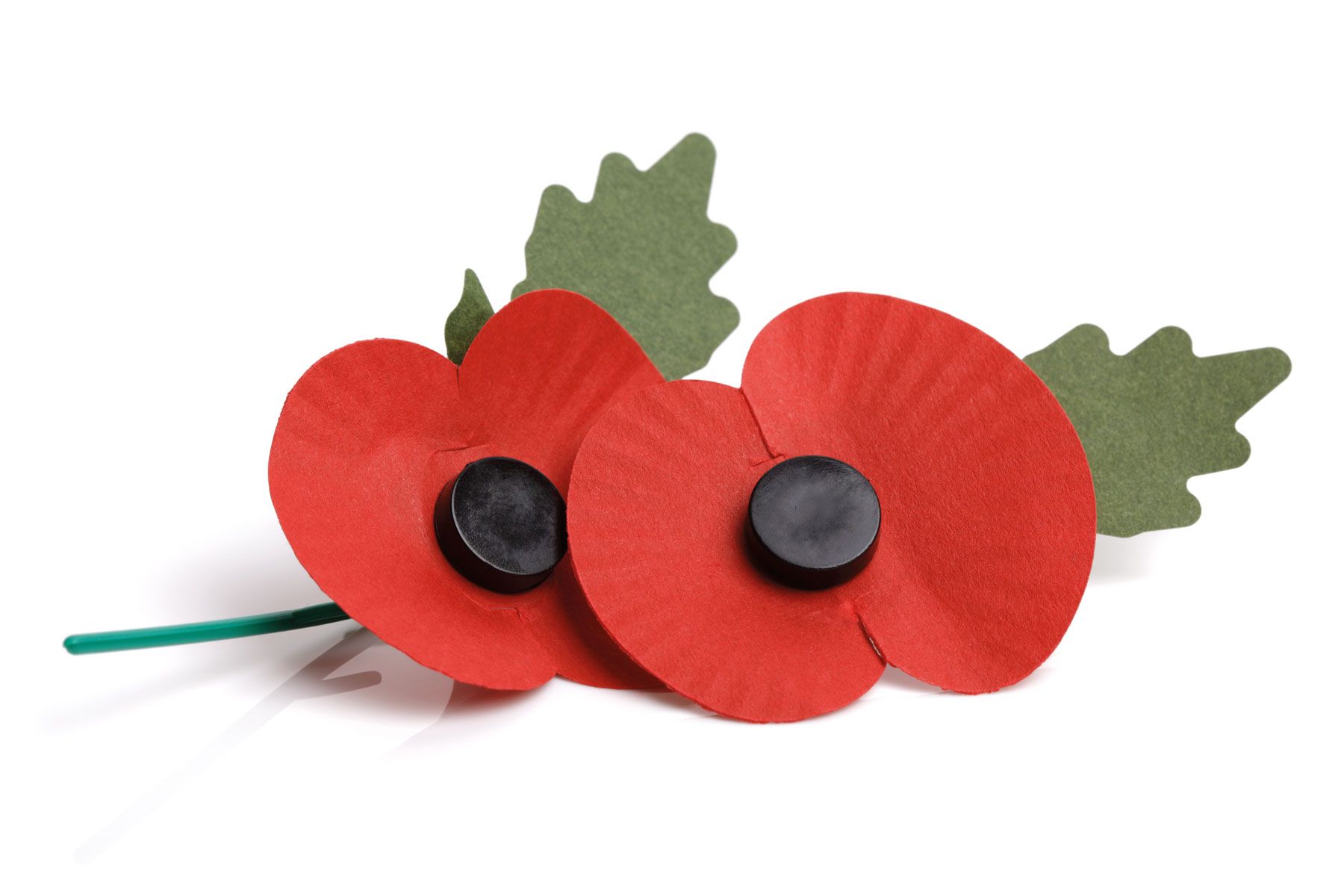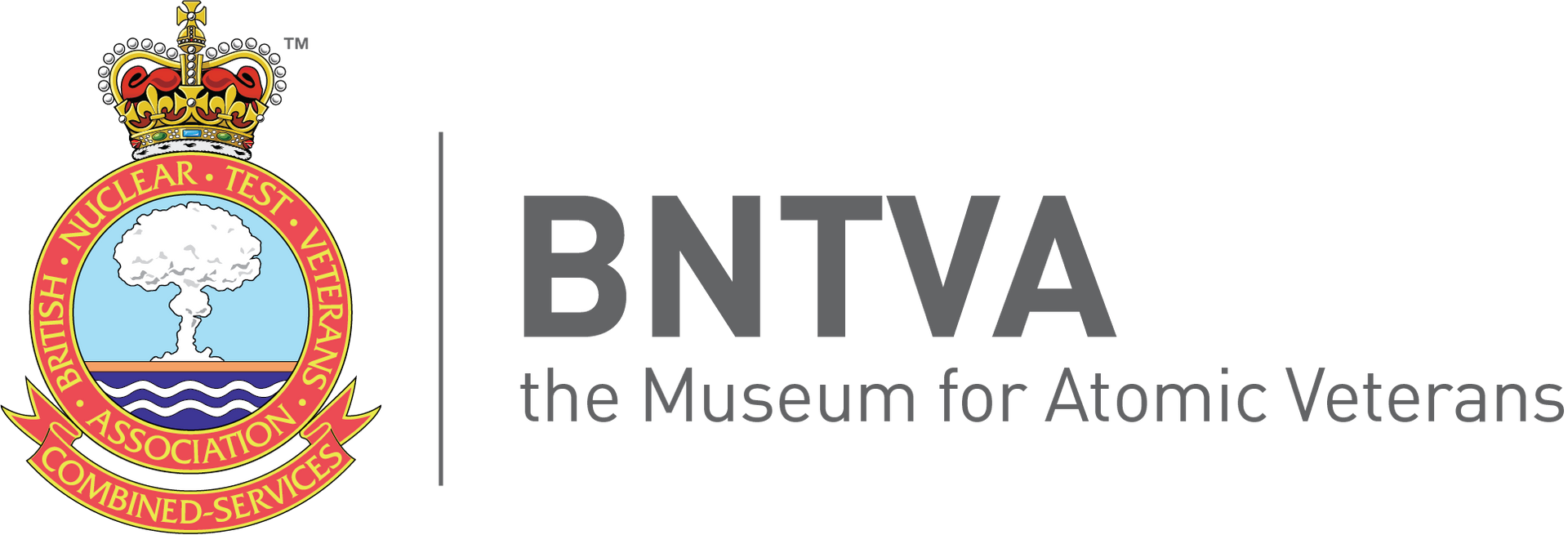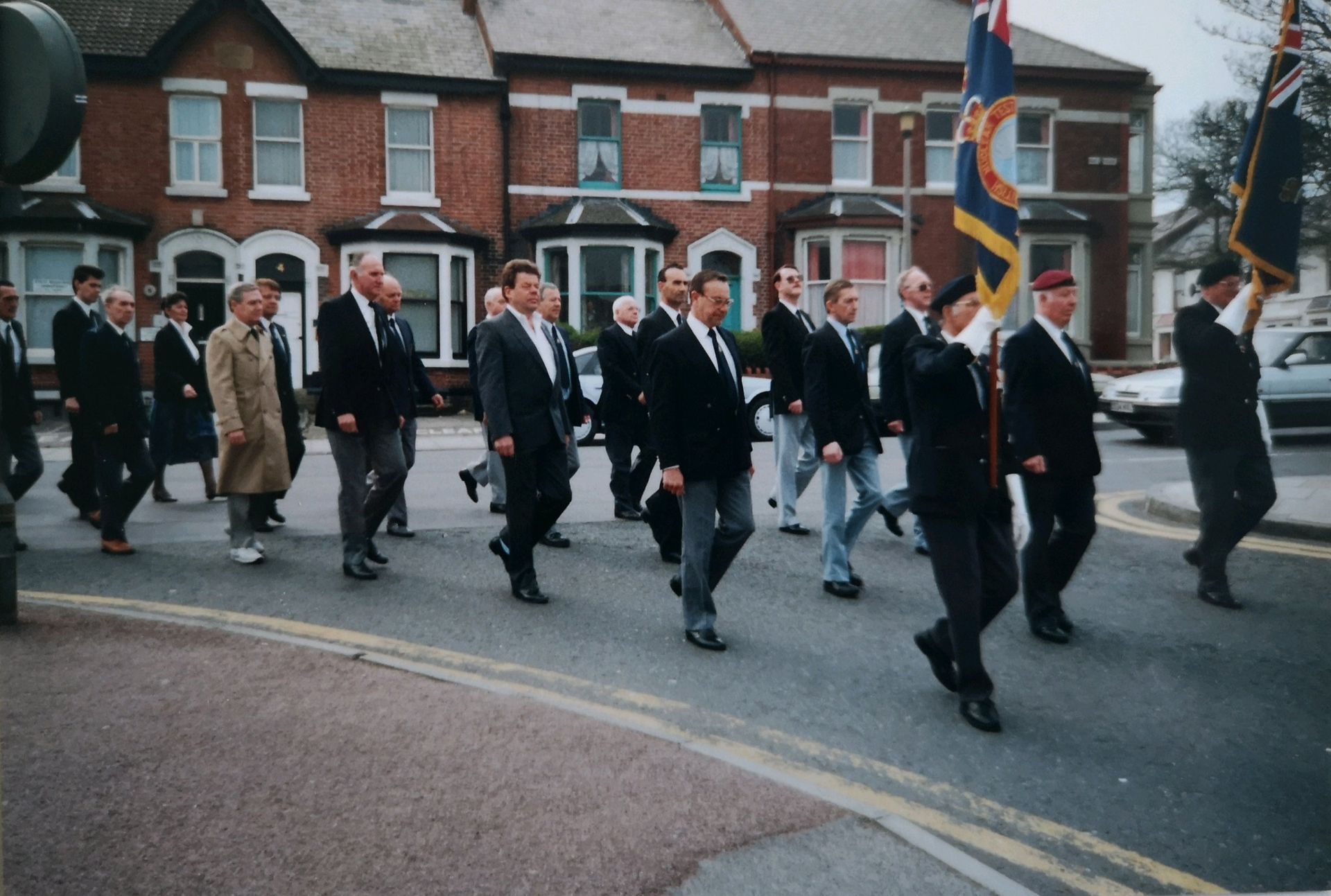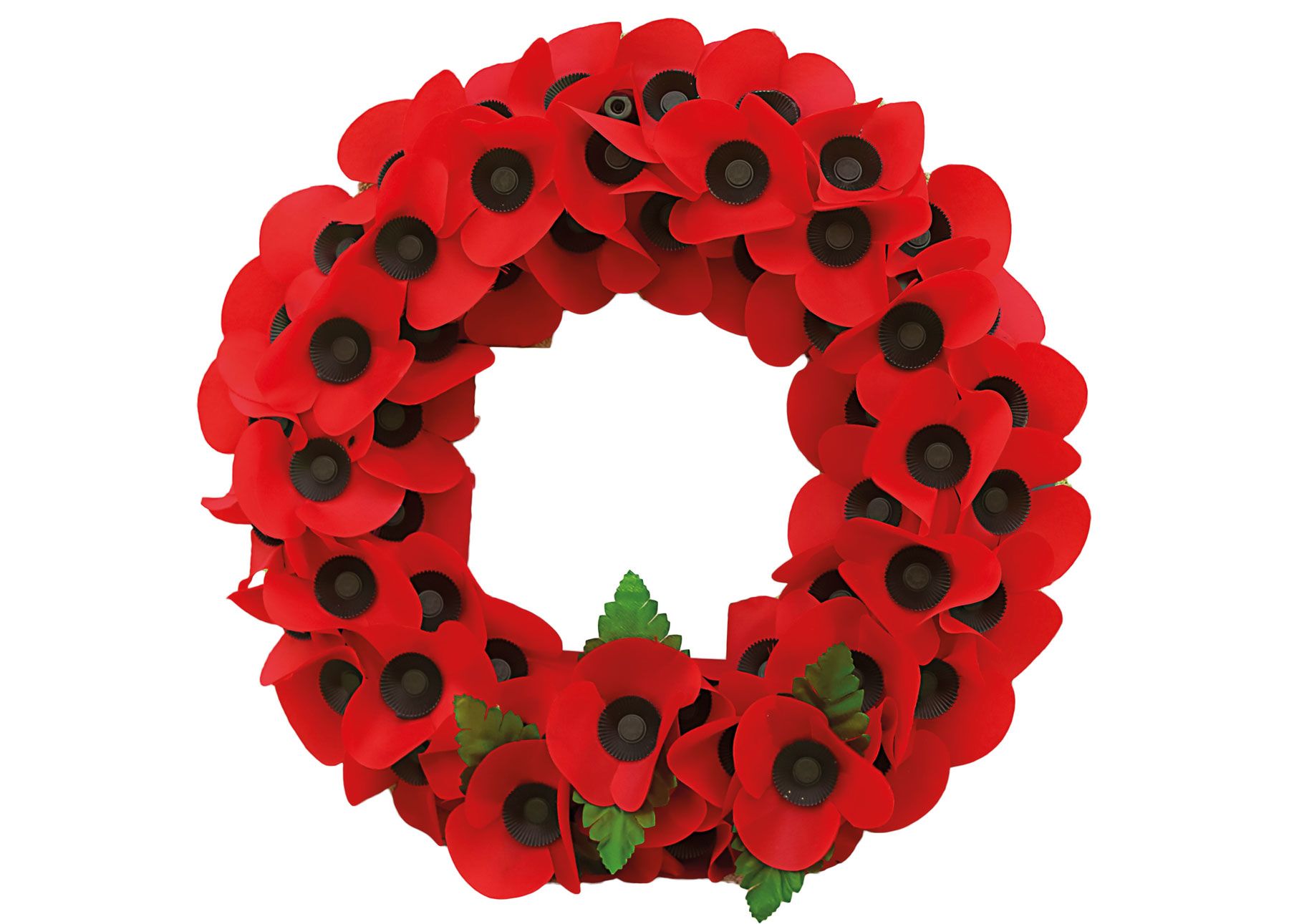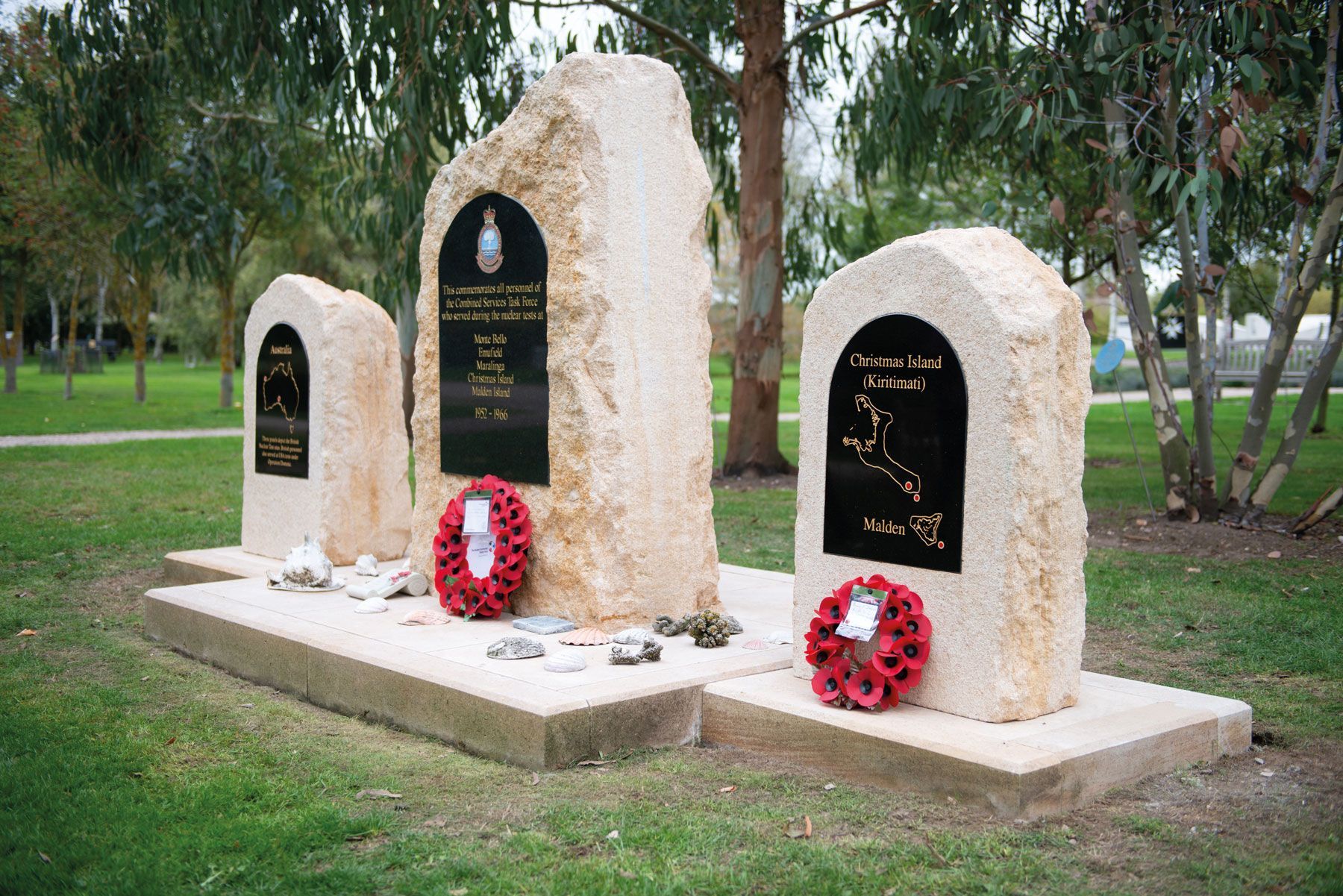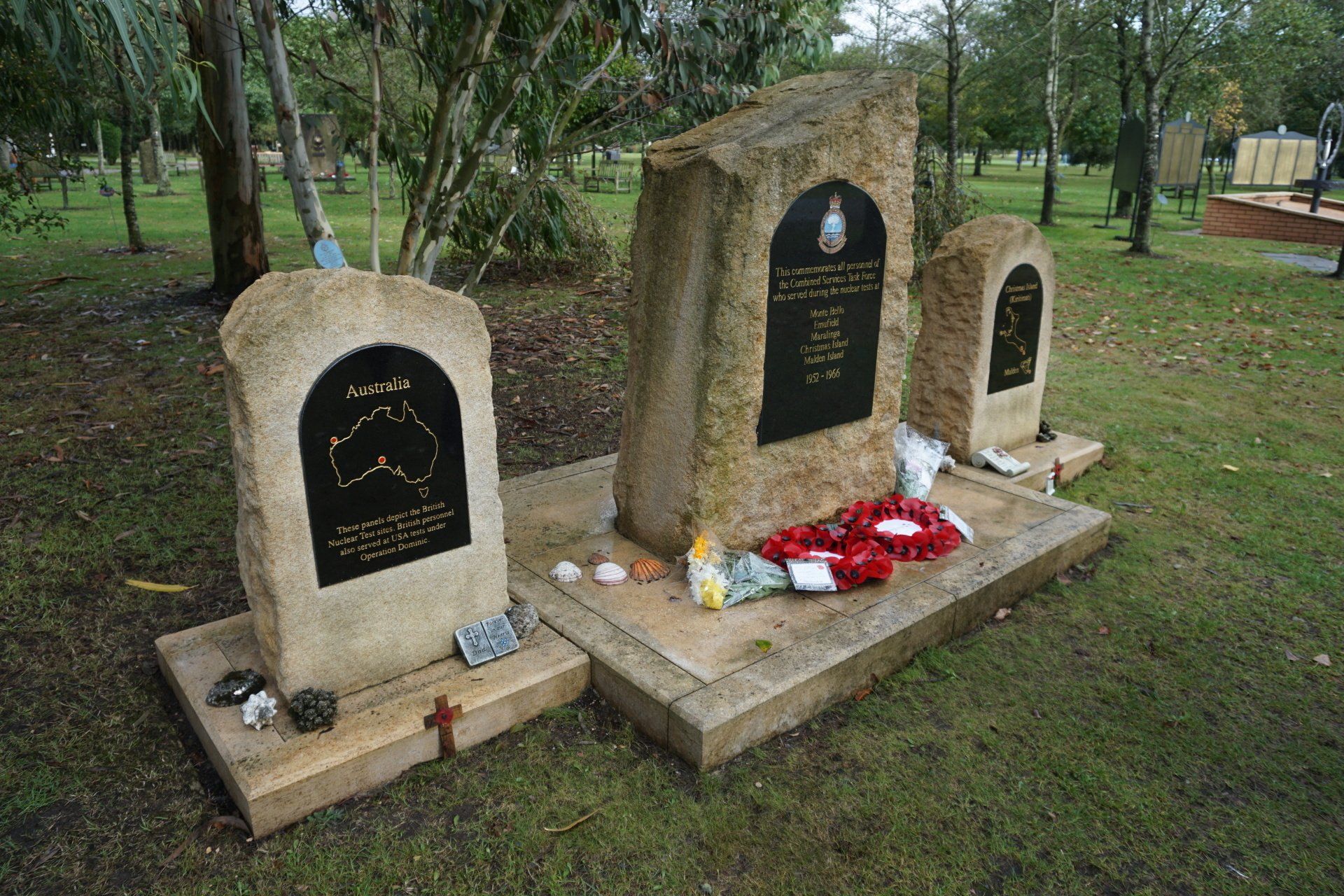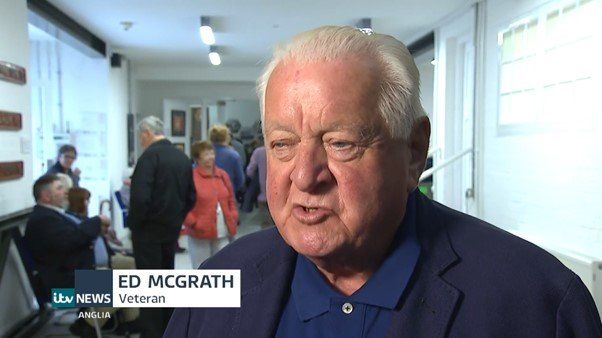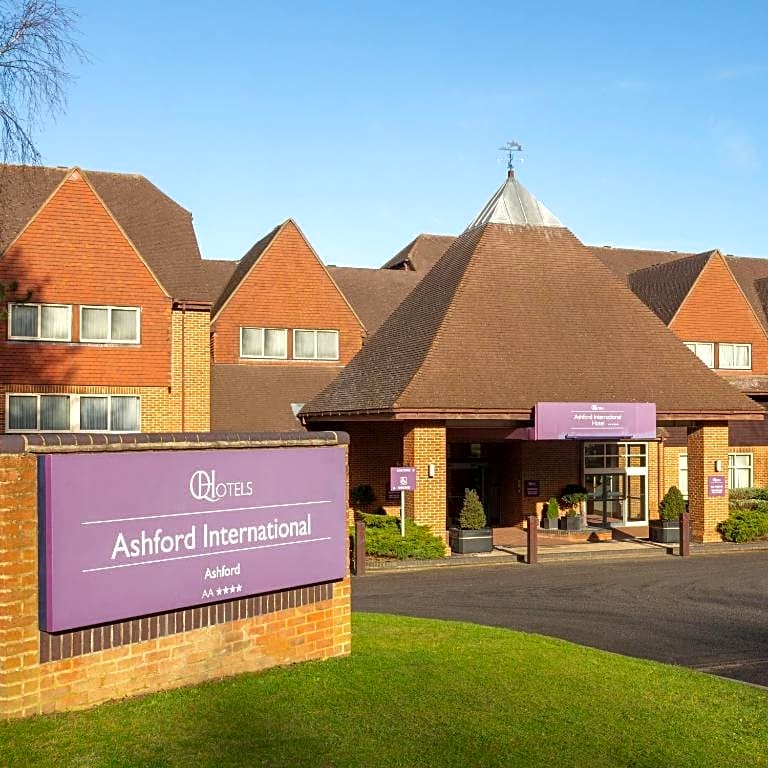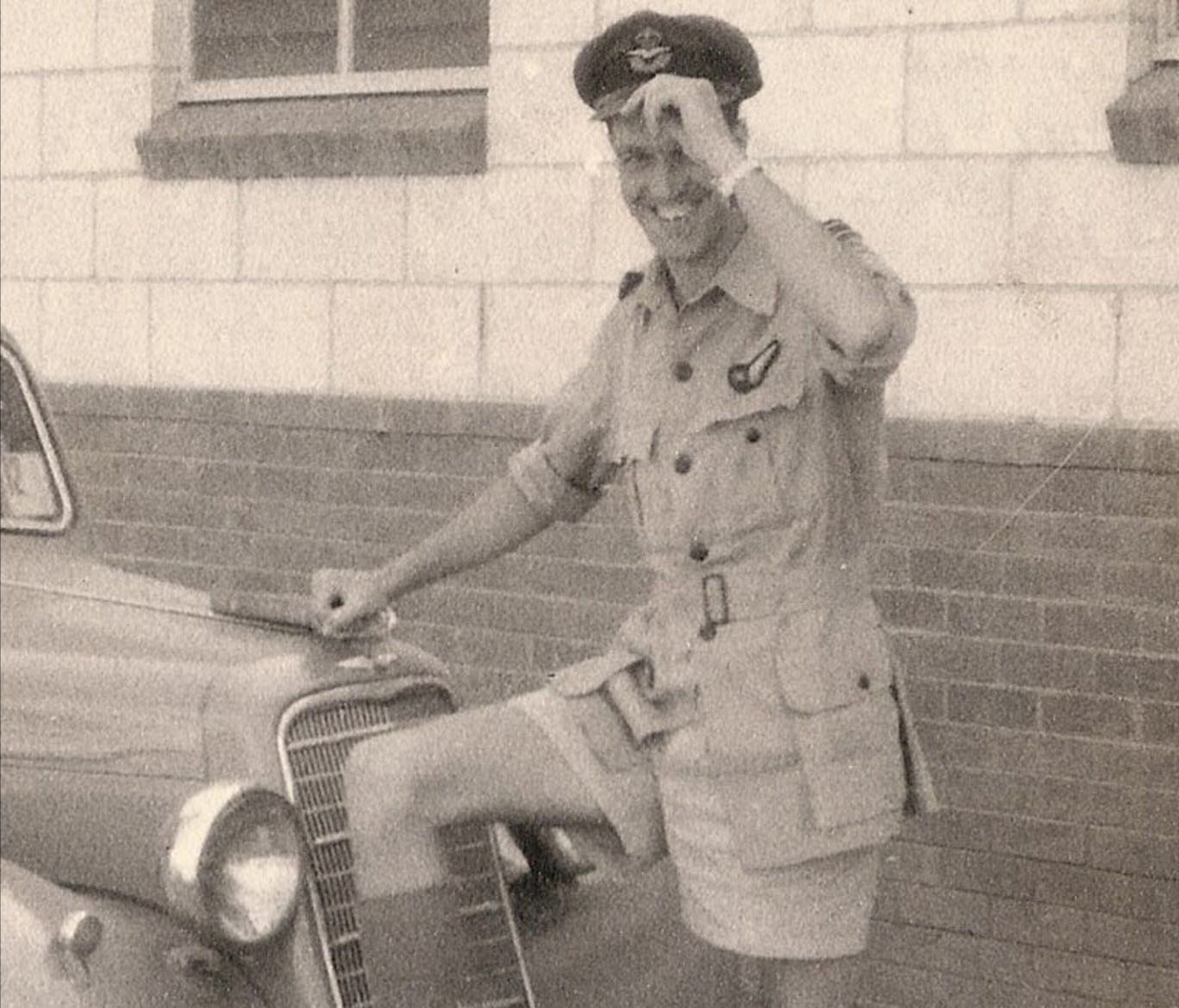The results are in - "No evidence of increased mutations in the germline of a group of British nuclear test veterans"
Initial results are in for the Genetic and Cytogenetic Family Trio (GCFT) study by Brunel University Centre for the Health Effects of Radiological and Chemical Agents (CHRC), the University of Leicester and the London School of Hygiene & Tropical Medicine, funded by the Nuclear Community Charity Fund (NCCF) and the Armed Forces Covenant Fund Trust (AVF16).
Further to the release of the first paper (attached) of the potential germline effects of radiation exposure in British nuclear test veterans and their offspring by Moorhead et al, the BNTVA makes a summary and first observations. The BNTVA has also sent the paper to the Office of Veterans’ Affairs for their comments.
On examining recent MOD research through the Fourth Analysis Study of the British nuclear test veterans, Moorhouse et al describe that just one quarter of the 21,357 nuclear weapons test participants were monitored with film badge dosemeters for radiation exposure. The authors touched on the small excess in mortality for cancer and non-cancer diseases (cerebrovascular disease) in British nuclear test veterans compared to the control group within the previous study, published in February 2022.
Additionally, the worries of nuclear test families were expressed through ‘exposure worry’, studied by Collett et al, which includes an inherent fear of genetic risk about radiation exposure at the tests, test sites and clean-up operations in Australia and the Pacific.
The paper explains that 759 test veterans were categorised by the Ministry of Defence into “special” groups, including the cloud sampling flyers at multiple atmospheric tests, and the crew of the HMS Diana who sailed through the plume at Operation Mosaic in 1956. The authors state that despite the limited radiation measurements taken from only one quarter of the men involved in the testing, many participants worked with radiation contamination for long periods of time following the tests but weren’t included in specific groups and their potential exposure was not monitored. These participants included aircraft mechanics, who often worked on cloud sniffing aircraft as well as many other men at the test sites.
Despite the title description revealing that no evidence of increased mutations found using whole genome sequencing in the germline of 30 nuclear test veterans has been identified compared to a similar control group of 30, this study found that a statistically significant finding occurred through single base substitution (SBS) mutations with signature 16 revealing “the largest difference”.
The discussion shows that of the six families with the highest number of the SBS16 mutations, the nuclear test veteran within four of the families had been assigned to potential for radiation exposure at the test sites. The study touches on how potential radiation-induced DNA damage in the veteran appears as a SBS16 signature finding within the offspring, yet then dismisses this data in comparison to the wider general population.
In 2021, Yeager et al published a study into the lack of transgenerational effects (de novo mutations) of ionising exposure in Ukrainian families subsequent to the Chernobyl accident. The authors state that the reported increase in health effects in nuclear test veteran offspring isn’t explained by de novo mutations “when compared as a group in this study”.
Findings suggest that many nuclear test veterans were “thought” to have encountered very low doses of radiation exposure, that there was a significant gap between test site participation and the conception of offspring. On comparing nuclear test veterans with cancer patients treated by radiotherapy with doses of 10s of Gys, DNA damage has been found to be completely repaired within testicular stem cells. However, despite taking this into consideration, further investigation is required into the elevated SBS signature 16 mutation which was discovered in the offspring of British nuclear test veterans.
The BNTVA welcomes further research on this finding as it raises more questions about our nuclear family. We would like to thank Brunel CHRC for carrying out this much-needed study and our sister charity, the NCCF, for providing the funding to make this happen.
We look forward to the next phase of results concerning a chromosomal analysis of veterans to look for signs of historic radiation exposure as well as chromosomal analyses of genetic alterations in their offspring.
https://chrc4veterans.uk/articles/
Further papers from the CHRC include:
Reference: Christine Rake et al (2022). British nuclear test veteran family trios for the study of genetic risk. Journal of Radiological Protection 42(2), 021528. https://iopscience.iop.org/article/10.1088/1361-6498/ac6e10
Lay summary for: British nuclear test veteran family trios for the study of genetic risk. – Centre for Health Effects of Radiological and Chemical Agents (chrc4veterans.uk)
Reference: Collett, G., Young, W.R., Martin, W. and Anderson, R. (2021) 'Exposure Worry: The Psychological Impact of Perceived Ionizing Radiation Exposure in British Nuclear Test Veterans.International Journal of Environmental Research and Public Health, 18(22), 12188. https://www.mdpi.com/1660-4601/18/22/12188
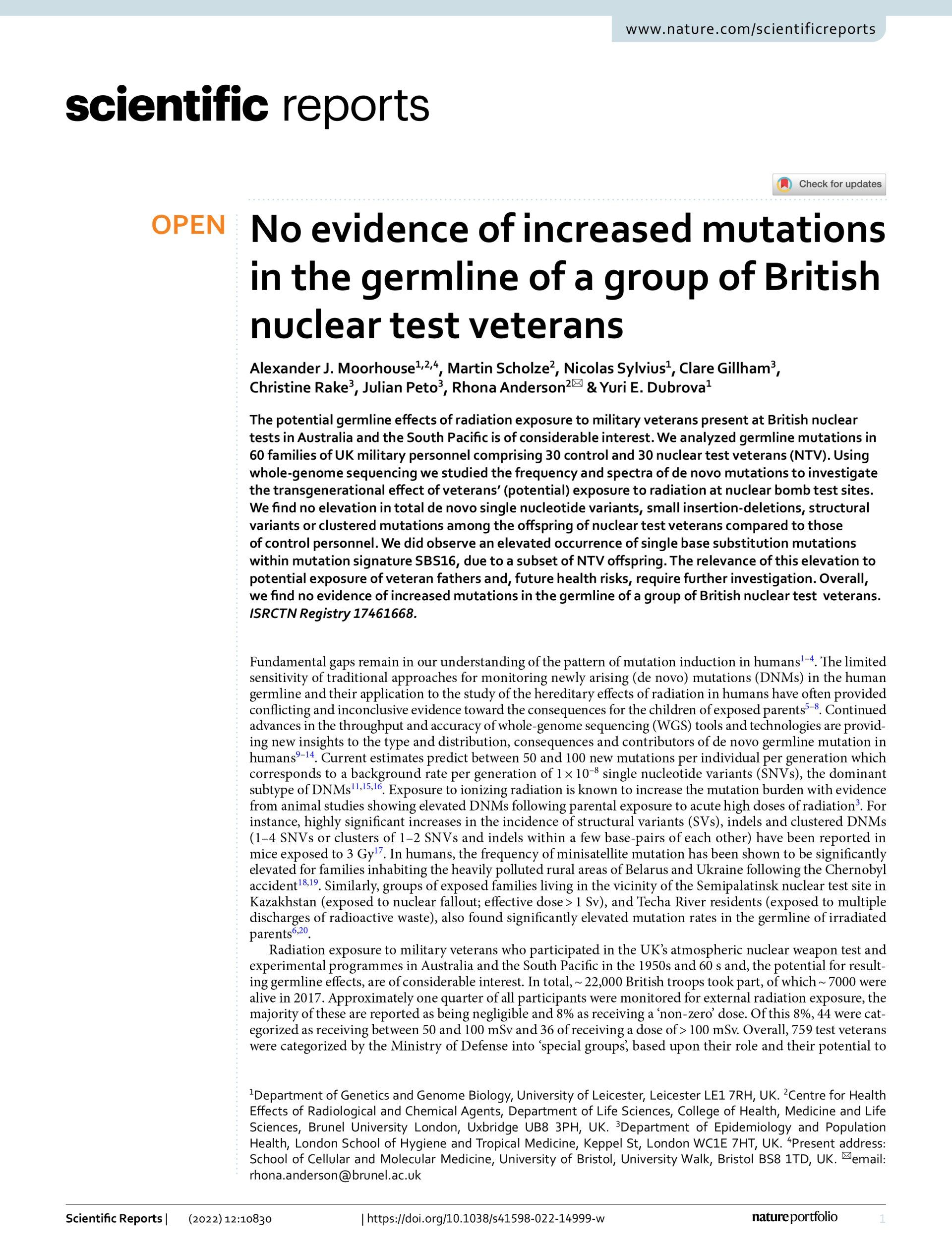
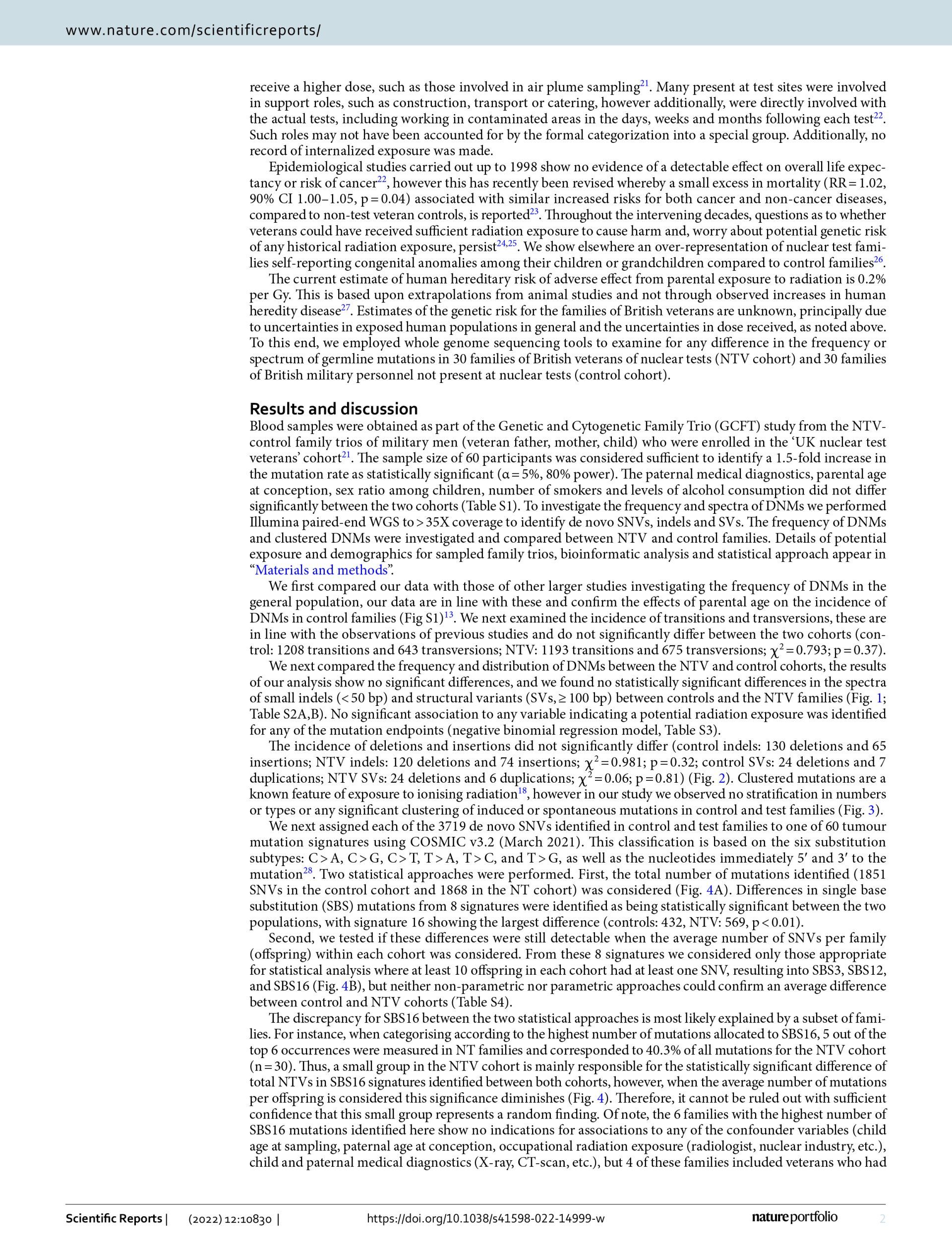
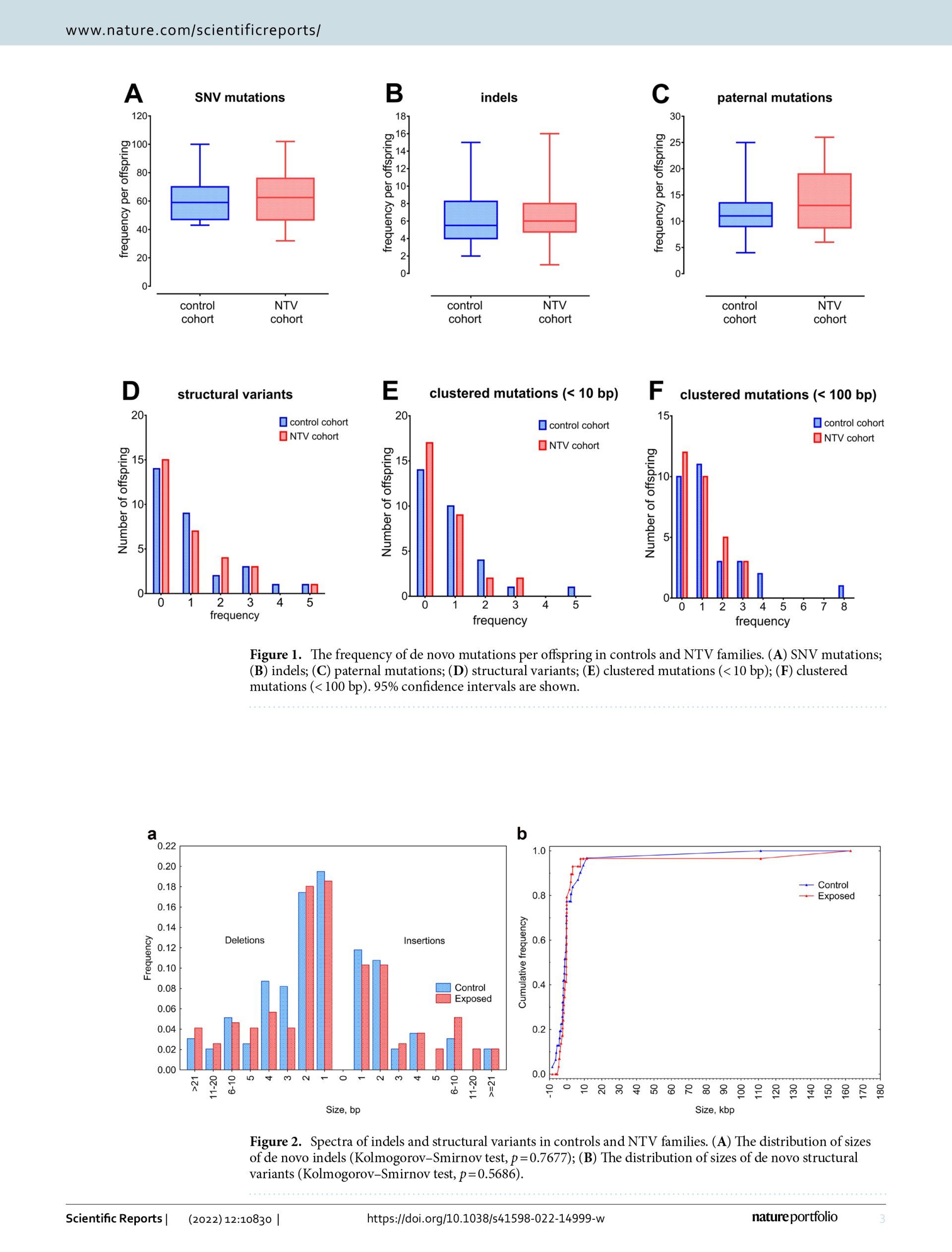
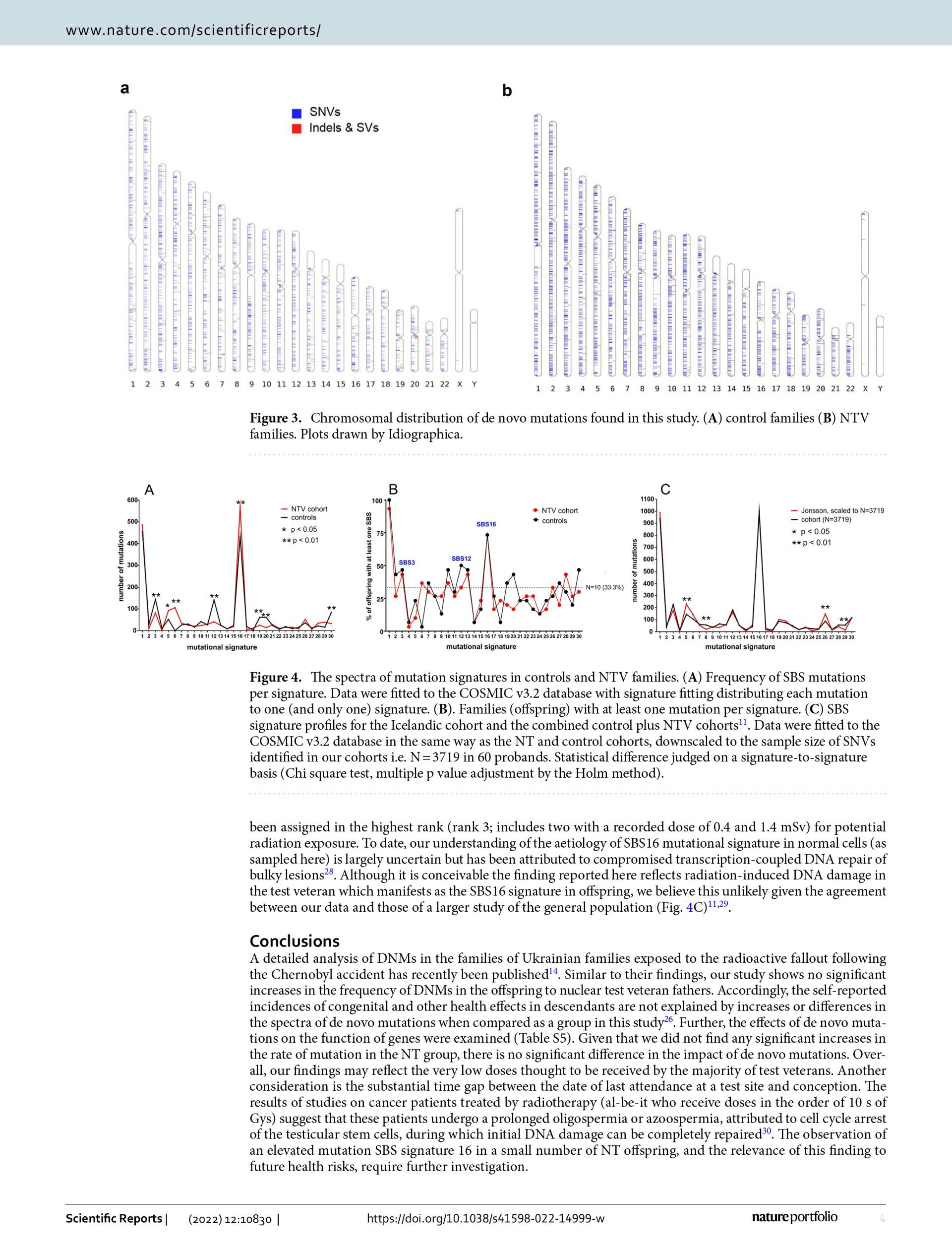
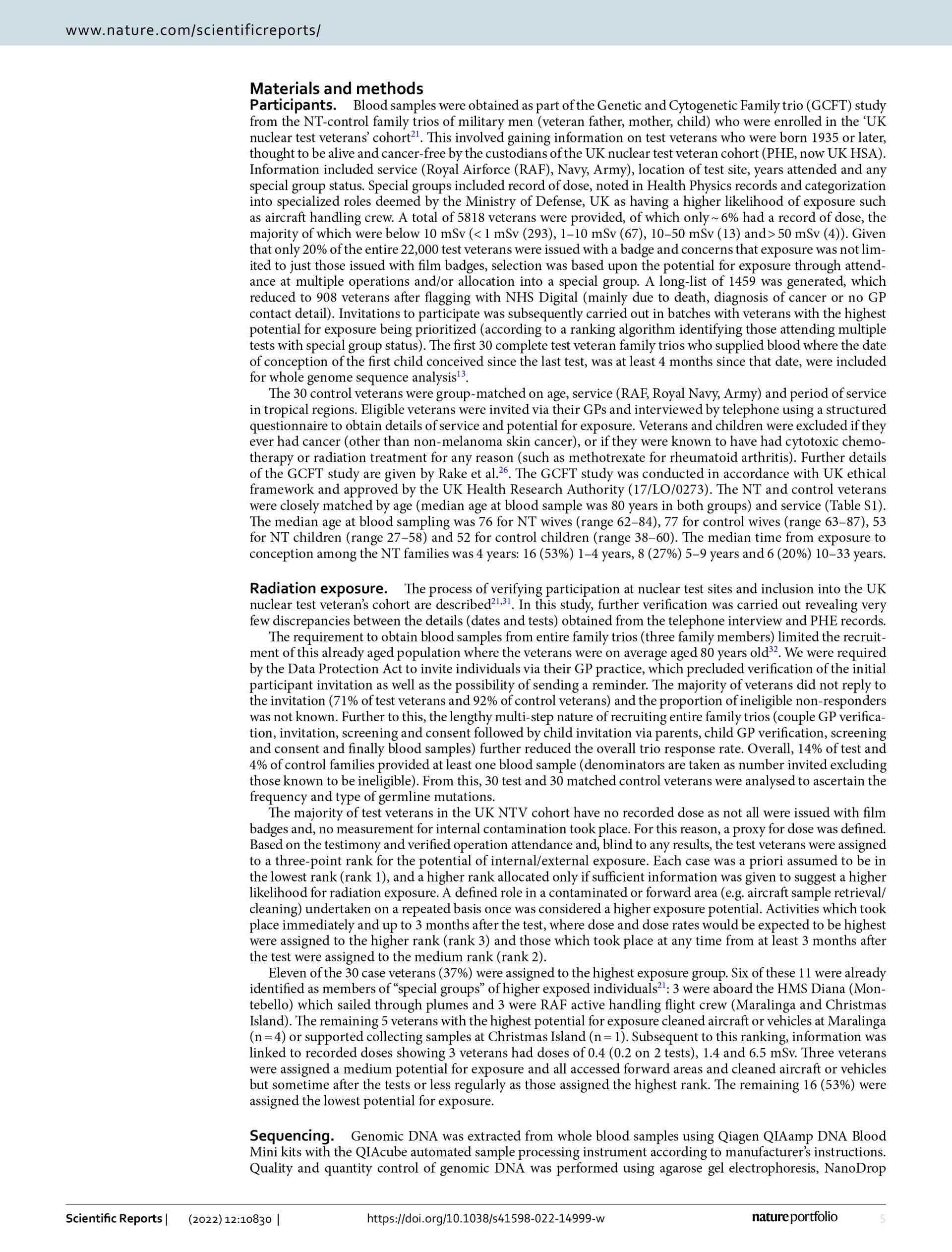
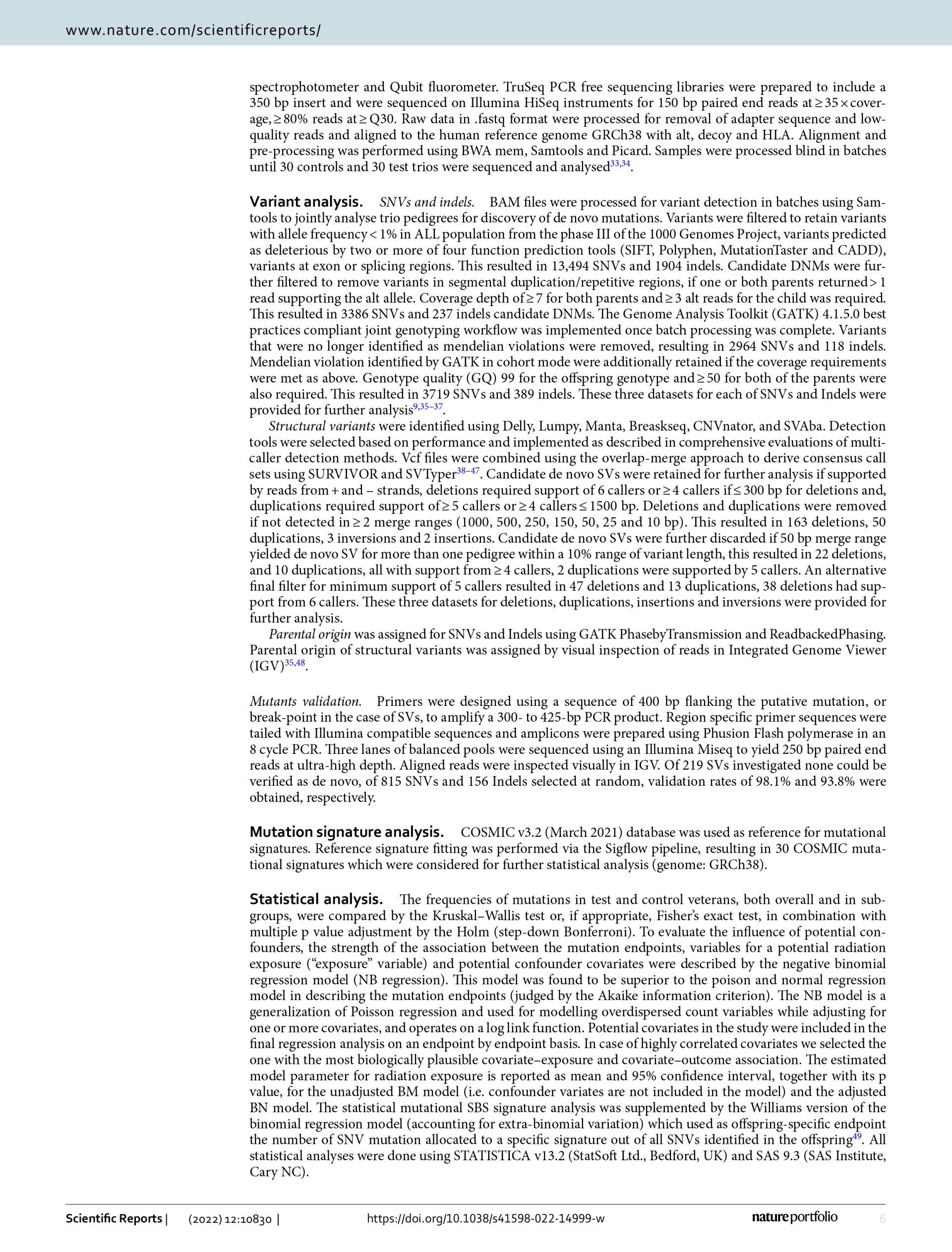
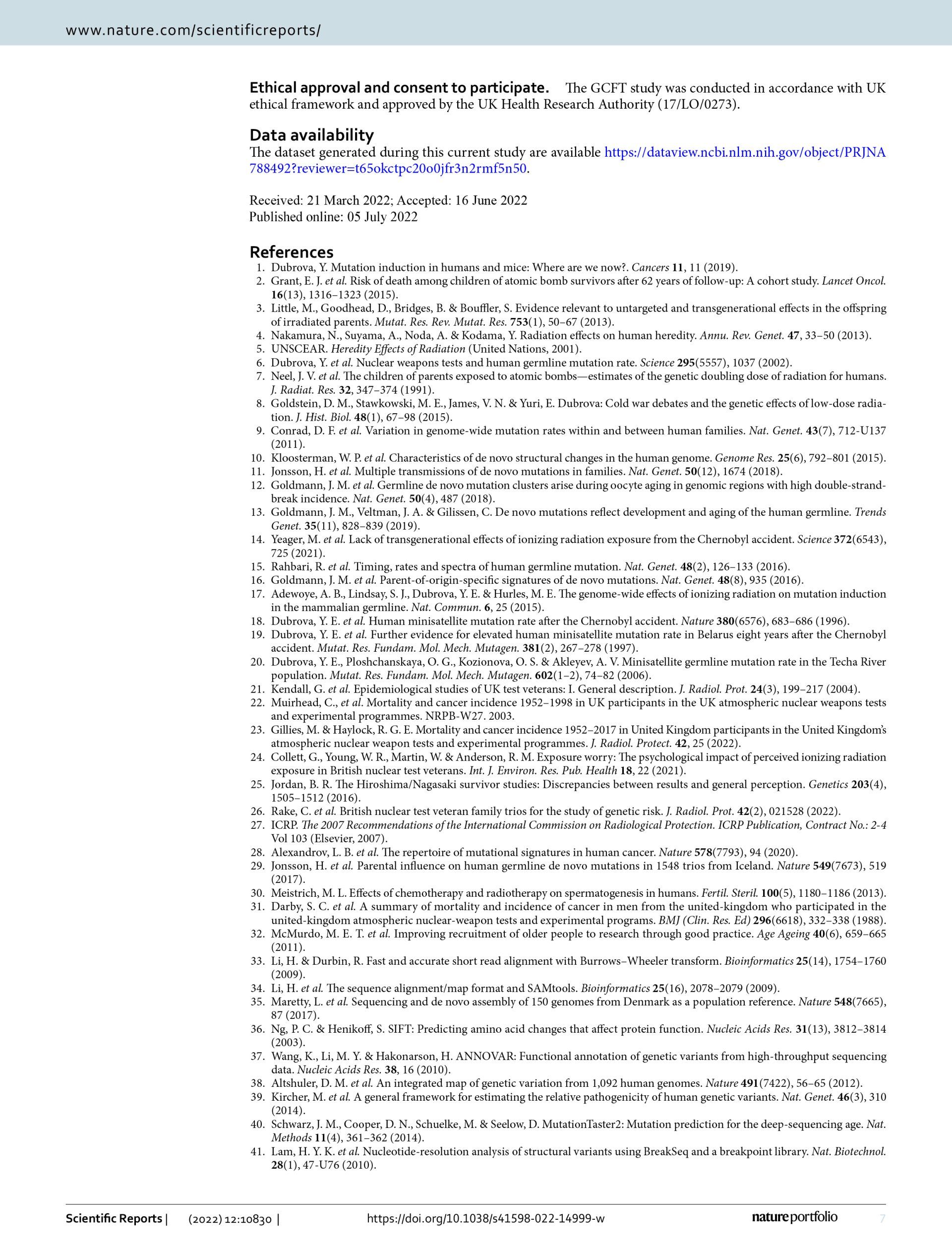
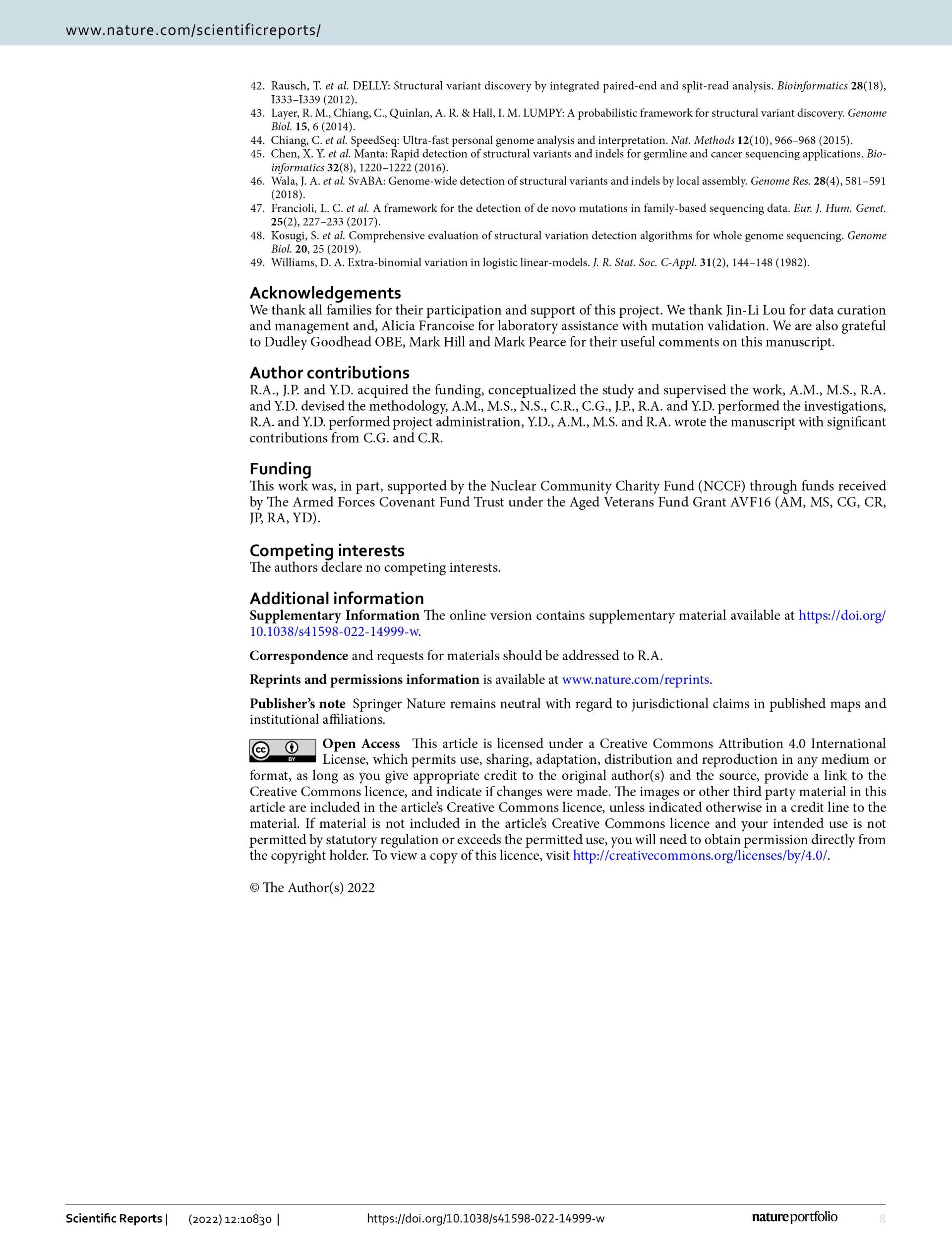
New Paragraph
